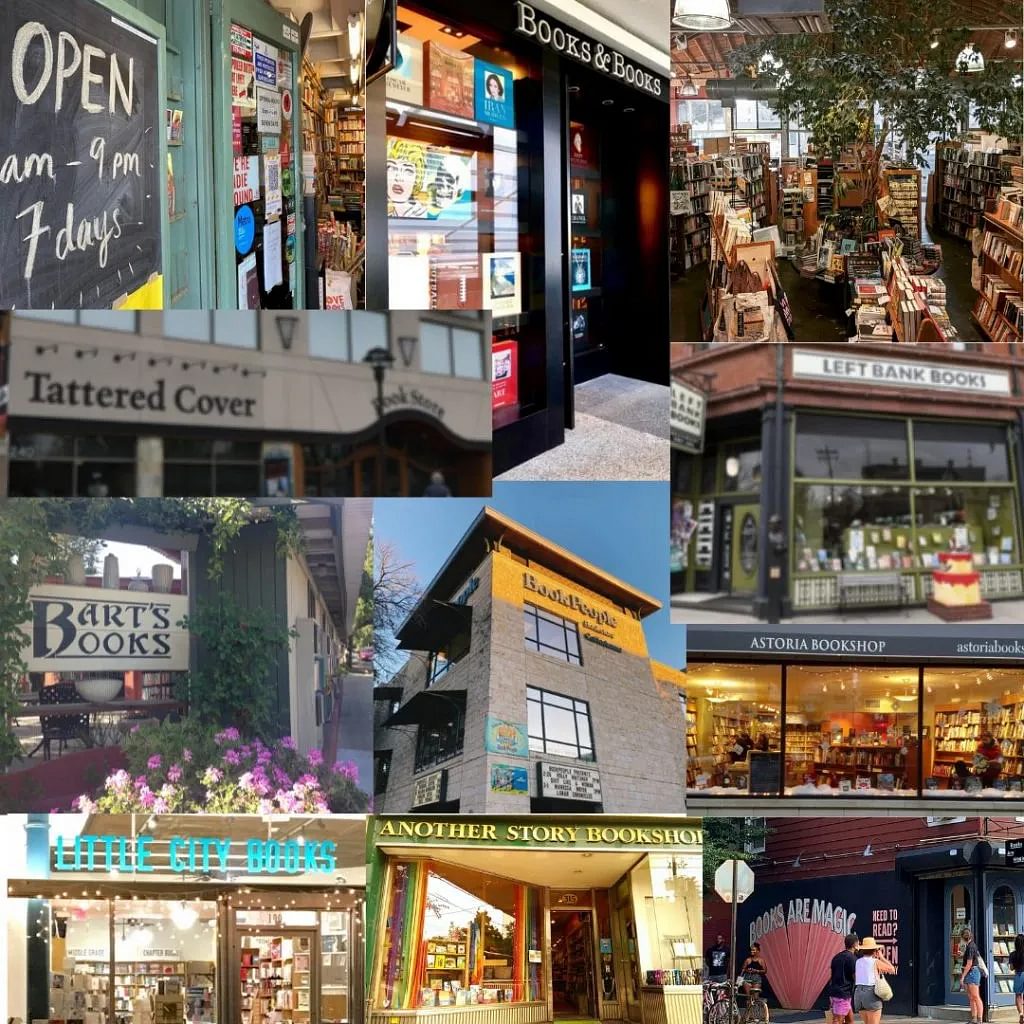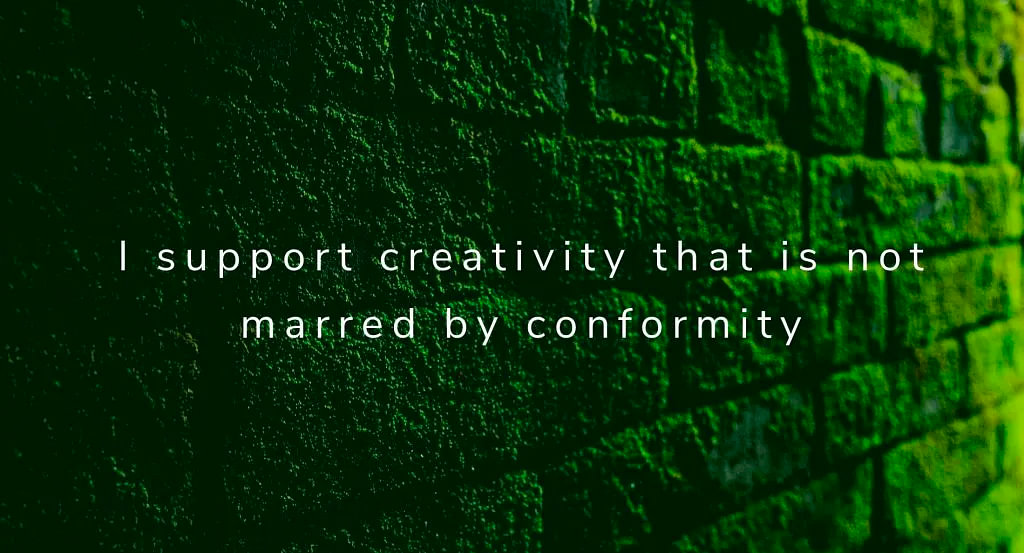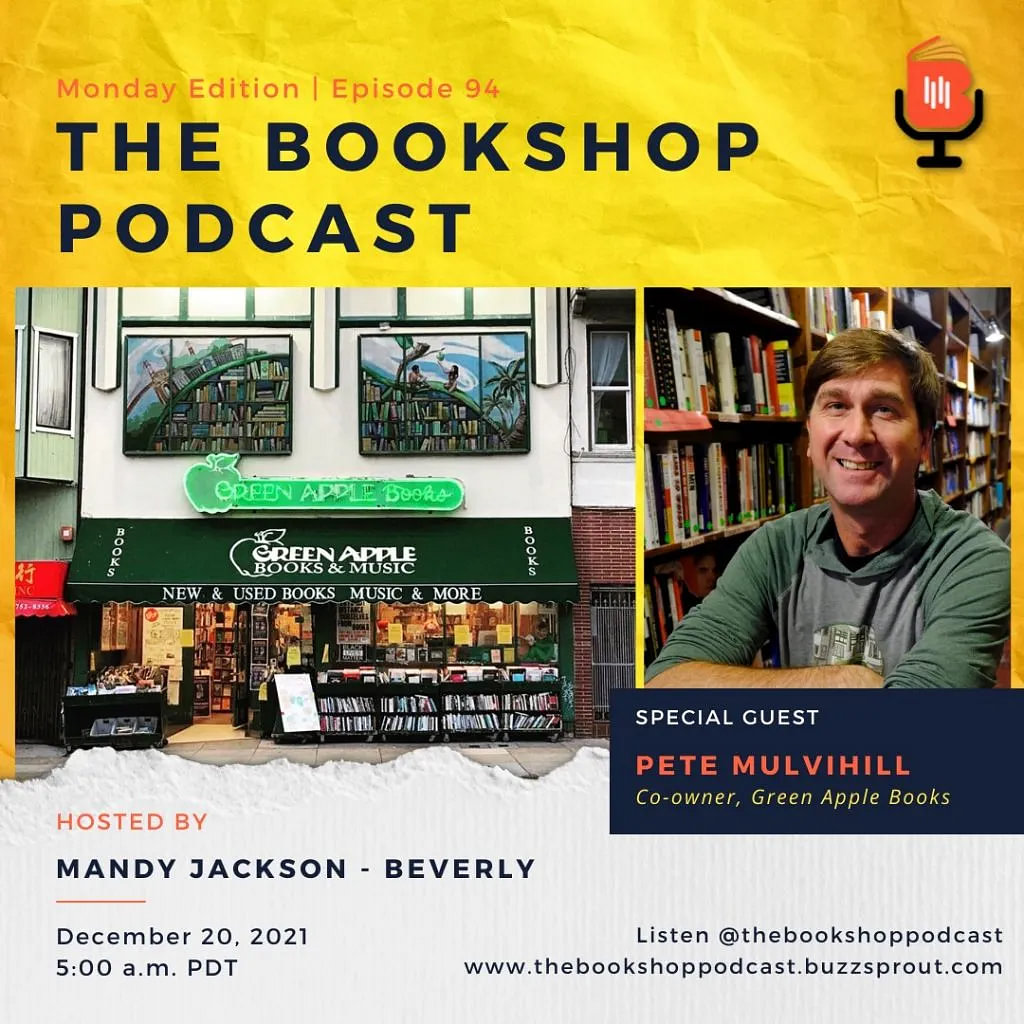
Why I Love Indie Bookshops. It Begins With Community.
 The news of Amazon closing its physical bookstores is not surprising. While Amazon might well hold the monopoly on online book sales, its bookstores are not comparable to brick-and-mortar independent bookshops.
The news of Amazon closing its physical bookstores is not surprising. While Amazon might well hold the monopoly on online book sales, its bookstores are not comparable to brick-and-mortar independent bookshops.
I have no wish to go into a bookstore and be bombarded by a stack of bestsellers, and I'm not fussed whether books face out or I see their spines. But the question remains: Why buy books from your local indie bookshop when you can buy them cheaper online from Amazon? My standard answer comes with questions: Do you live in a community that houses a brick-and-mortar independent bookshop? Are you someone who values books written by your favorite authors enough to want to support them so they can write more books? Would you prefer a book recommended to you by a bookseller who reads or by an algorithm that is clueless about small and medium presses and new authors?
What I've Learned From Chatting With Indie Bookshop Owners
Since October 2020, I've interviewed over 120 independent bookshop owners, managers, and booksellers worldwide for The Bookshop Podcast and almost as many authors. I've learned that one doesn't get into bookselling or writing with a dream of getting rich quickly or extended paid holidays. Indie bookshop owners love literature. They enjoy talking about books, holding books, and acting as literary matchmakers. And indie bookshop owners cherish and are involved in their communities.
As consumers, we have choices; do we shop locally or from online corporations such as Amazon? While other online options are available to shop for books, Amazon is the button many customers tap. However, consider what happens when you purchase a book from Amazon. The 2019 Civic Economics Prime Numbers study reported that 28 percent of all revenue from indie bookstores immediately recirculates in the local economy vs. only 4 percent when you shop with Amazon.
Why Indie Bookshops
Booksellers help you find that book you read thirty years ago that you can't remember the name of by the author whose name escapes you. If you're fortunate, an independently owned brick-and-mortar bookshop in your community is stocked with books and booksellers ready to offer suggestions. Most indie bookshops offer online ordering through eCommerce sites or platforms such as IndieBound.org and Bookshop.org.
"Oh," you mumble, "I only read eBooks or listen to audiobooks." Fear not; many bookshops offer eBooks via Kobo.com/indie and Hummingbird Digital Media and audiobooks via Libro.fm. Indie bookshops receive a percentage of each sale, and the book appears on your device. Just like Amazon.
You roll your eyes and say, "but I want the book tomorrow!"
Chances are, you will find the book on the shelf of your local indie bookshop, or a bookseller will order it for you. Otherwise, you can order books through their eCommerce site and they'll be delivered to your door.
Change the Way Art is Valued: Shop Local
As for books costing less on Amazon, the cost is not only about money. Writers often make below minimum wage for payment of their years of research, writing, and editing their manuscripts. After which, they'll find their book discounted on Amazon or available from a third party at a further discounted price. It's time creatives earned a living wage for their work instead of requesting donations through platforms such as Patreon, whose website reads: "Change the way art is valued."
The disrespect for authors does not stop on Amazon. Piracy networks give eBooks away for free. While some authors are making six and seven figures annually from sales on Amazon, this is not the norm. Whether self-published or traditionally published, authors wear multiple hats. They're public relations specialists, and marketing comes at a price, monetarily and in time spent learning multiple platforms and skillsets.
"Every spending decision is like voting..."
 I asked Pete Mulvihill, co-owner of Green Apple Books in San Francisco, what he would say to those arguing that books from Amazon are cheaper. "I'd say there's a hidden cost to everything cheap. Fossil fuels might be cheaper than solar power right now, but there's an effect to that. Every spending decision is like voting; every time you put your money somewhere, you're voting for its continued existence. Every time you buy something from Amazon, you vote against a vibrant retail corridor and independent businesses."
I asked Pete Mulvihill, co-owner of Green Apple Books in San Francisco, what he would say to those arguing that books from Amazon are cheaper. "I'd say there's a hidden cost to everything cheap. Fossil fuels might be cheaper than solar power right now, but there's an effect to that. Every spending decision is like voting; every time you put your money somewhere, you're voting for its continued existence. Every time you buy something from Amazon, you vote against a vibrant retail corridor and independent businesses."
Every book purchased through Amazon devalues literature and the chain of people who make books possible. From the author to editors, agent, publisher, cover designer, formatter, sales rep, and marketing team to the bookseller who hands you the final piece of art. It's a big pie, and the slices get smaller when you tap that button on Amazon.
Buy local, read global, and support your local indie bookshop!
